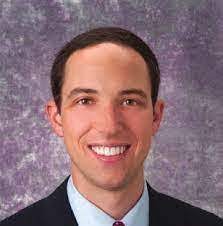
Easy Tips for Studying Urgent Care Medicine
Introduction: The field of urgent care medicine offers exciting opportunities for medical professionals looking to provide immediate and comprehensive care to patients. Dr Michael Hilton emphasizes that although urgent care medicine is a relatively young specialty, there are various ways to enhance your education and gain expertise in this field. In this article, we will explore some easy tips to help you excel in studying urgent care medicine.
Immerse Yourself in Urgent Care Medicine Material: To become well-versed in urgent care medicine, start by immersing yourself in the available literature. Utilize textbooks, journal articles, and online resources that specifically focus on urgent care medicine. These resources provide valuable insights into the core principles, diagnostic approaches, and treatment modalities relevant to urgent care settings. Additionally, mobile apps can serve as convenient tools for accessing relevant medical content on the go.
Attend Urgent Care Medical Courses: Consider attending urgent care medical courses offered online, in-person, or through local colleges. These courses cover essential topics and provide comprehensive guidance in urgent care medicine. For a more immersive learning experience, explore accredited university programs that offer specialized courses in urgent care medicine, as well as related healthcare fields such as nursing and medical assisting. These courses offer valuable knowledge and practical skills to help you excel in urgent care practice.
Participate in Urgent Care Clinical Rotations: Engaging in clinical rotations is an excellent way to gain hands-on experience in urgent care medicine. Seek out paid or unpaid internships in hospitals or clinics that provide urgent care services. These rotations provide opportunities to observe and learn from experienced professionals, deepen your understanding of urgent care workflows, and develop crucial clinical skills. Online platforms and resources can assist you in finding available clinical rotation opportunities in urgent care medicine.
Gain Clinical Experience in Emergency Departments or Urgent Care Facilities: Working in an emergency department or an urgent care facility can offer invaluable clinical experience. This hands-on approach allows you to witness and actively participate in urgent care scenarios, providing exposure to various medical conditions, emergencies, and treatment modalities. By observing the expertise of seasoned professionals, you can learn from their practices, and refine your own skills in managing urgent care cases. Consider seeking clinical experience in diverse settings, including hospitals, urgent care facilities, clinics, and community health centers, to broaden your knowledge and adaptability.
Continual Learning and Networking: In addition to formal education and clinical experiences, engage in continual learning and networking within the urgent care medicine community. Attend conferences, seminars, and workshops dedicated to urgent care medicine to stay updated with the latest advancements and best practices. Connect with fellow professionals, join relevant associations, and participate in online forums to foster collaboration and share knowledge within the urgent care field.
Conclusion: Studying urgent care medicine requires dedication, active participation, and a commitment to continual learning. Dr Michael Hilton By immersing yourself in urgent care medicine material, attending specialized courses, participating in clinical rotations, gaining clinical experience in relevant settings, and fostering a network of professional connections, you can enhance your expertise in this dynamic and rewarding field. Embrace the opportunities for growth and knowledge acquisition, and embrace the challenges that urgent care medicine presents. Your commitment to ongoing education and practical experience will help you excel as an urgent care practitioner, providing compassionate and effective care to patients in their time of need.